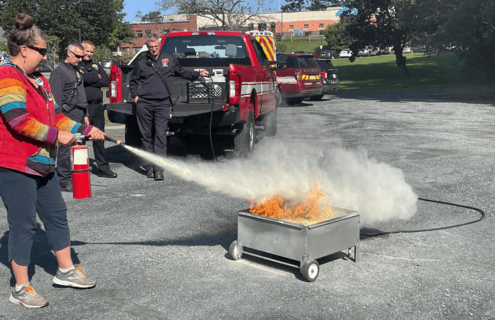
Flood warning, winter weather, candle catastrophe, vegetable chopping mishap — are you and your family prepared to handle an emergency situation?
On the APD campus, we are fortunate to have Nicole Woods, Operations Support Manager in Quality Assurance and Patient Safety, providing staff with weather updates and reminding us to stay hydrated in extreme heat, stay indoors in questionable weather patterns, and stay safe when the roads are snowy and icy.
Although National Preparedness Month was in September, it’s always a good time to share safety tips with your loved ones. Woods provides 10 suggestions:
- Make sure at least one person in your household knows first aid/CPR.
- Have a family communication plan in place. Post it someplace visible, such as the fridge, near the front door, or on a family bulletin board.
- Have important phone numbers written down or memorized.
- Have an emergency kit in your car. Some ideas are: jumper cables, flashlight and extra batteries, shovel, blanket, and a first aid kit.
- Store your important documents — birth certificates, insurance policies, wills and trusts — in a fireproof safe, if possible.
- Sign up for emergency alerts if possible in your area state and local municipalities.
- Build an at home emergency supply kit over time. Items might include water, canned food, battery-powered radio, flashlight and batteries, first aid kit, etc.
- Learn to use a fire extinguisher.
- Know how to shut off your utilities at home.
- Practice evacuation drills in your own home.
“Take some time this fall to create emergency plans with your loved ones. Then, during the year, review and update them if necessary,” Woods said. “Preparation is essential, not optional.”
For more ideas, check out these helpful sites: